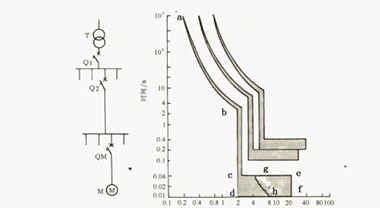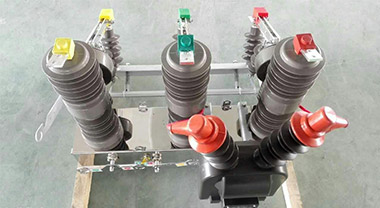Principle of extinguishing arc of circuit breaker
Arc extinguishing is one of the important applications of circuit breakers, because the arc will not only cause damage to the equipment circuit, but also affect personal safety. Therefore, what is necessary for arc extinguishing, there are generally four common methods of arc extinguishing, including mechanical arc extinguishing, magnetic blow extinguishing, etc. In this article, I explain the common methods of arc extinguishing and the arc extinguishing principles of some common circuit breakers.
First, discuss the commonly used arc extinguishing methods, there are mainly the following four:
1. Mechanical arc extinguishing: the arc is quickly elongated by the limit device. This method is mostly used in switching appliances.
2. Magnetic blowing arc: under the action of a magnetic field generated by a magnetic blowing coil connected in series with the contact, the arc is elongated by the action of electromagnetic force, and is blown into the arc extinguishing cover composed of solid medium, and is in phase with the solid medium. Contact, the arc is cooled and extinguished.
3. Narrow slit (longitudinal slit) arc extinguishing method: under the action of the magnetic field electromotive force formed by the arc, the arc can be elongated and enter the narrow (longitudinal) slit of the arc extinguishing cover, and several longitudinal slits can divide the arc In several segments and in contact with the solid medium, the arc is quickly extinguished. This structure is mostly used on AC contactors.
4. Grid arc extinguishing method: When the contacts are separated, the generated arc is pushed into a group of metal grids under the action of electric power and is divided into several segments. Each of the insulated metal grids is equivalent For one electrode, there are many anode and cathode voltage drops. For AC arcs, near the cathode, a dielectric strength of 150V~250V will appear when the arc crosses zero, so that the arc cannot be maintained and extinguished. Since the arc extinguishing effect of the grid is much stronger than that of DC, AC appliances often use the grid to extinguish the arc.
These methods are mainly for some low-voltage circuit breakers. To understand the reasons for adopting these methods, it is necessary to clarify the principle of circuit breaker arc extinguishing. The following is a discussion of some commonly used circuit breakers.
Vacuum circuit breaker arc extinguishing principle
At the moment of vacuum circuit breaker breaking, due to the existence of the capacitance between the two contacts, the insulation breakdown between the contacts causes a vacuum arc. Due to the shape and structure of the contact, the vacuum arc column rapidly diffuses to the vacuum area outside the arc column. When the interrupted current approaches zero, the temperature and pressure of the arc between the contacts drop sharply, so that the arc cannot be maintained and extinguished. Within a few μs after the arc is extinguished, the pressure resistance level of the vacuum gap between the two contacts quickly recovers. At the same time, the contacts have reached a certain distance, which can withstand high recovery voltage. Therefore, after the general current crosses zero, the arc will not reignite and be broken. This is the principle of its arc extinguishing.
Arc extinguishing principle of high voltage drop fuse
Everyone knows that in high-voltage and high-current situations, switches often use more complicated methods and structures to extinguish arcs, while high-voltage drop-out fuses only need a very simple hose to smoothly and well achieve arc extinguishing. The main reason is Yes: First, the high voltage drop fuse current is not very large. The arc generated is not very large. Second, air is used to extinguish the arc. It is a bit the same as the arc extinguishing principle of the air switch. It's just a different structure.




